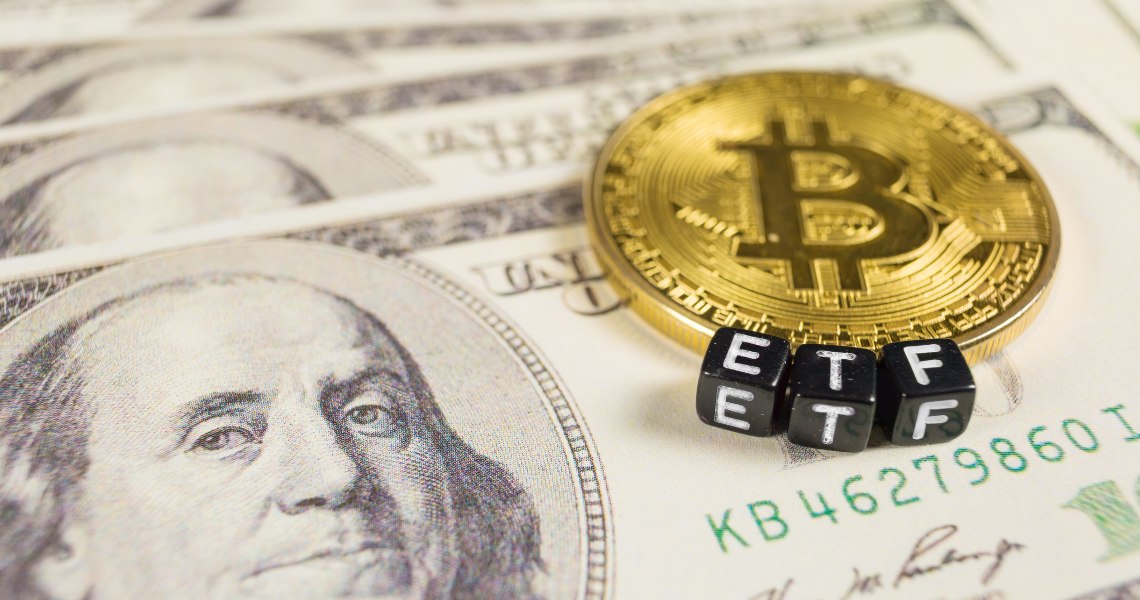Bitcoin ETFs Suffer $5.5 Billion Outflow Amid Economic Uncertainty
17.03.2025 20:00 1 min. read Alexander Stefanov
U.S. Bitcoin exchange-traded funds (ETFs) have experienced their most extended period of withdrawals since launching in January 2024, with over $5.5 billion in outflows over the past five weeks.
This decline in value coincides with growing investor caution, as many are pulling away from high-risk investments due to concerns about U.S. President Donald Trump’s tariff policies and broader economic instability.
Despite Trump’s historically favorable stance on cryptocurrencies, including discussions on digital asset stocks, both Bitcoin and other digital currencies have faced significant struggles in 2025. Experts believe the negative market sentiment driven by escalating trade tensions is outweighing any optimistic views on digital assets.
“Right now, Bitcoin and cryptocurrencies are largely influenced by broader economic trends. I don’t foresee Bitcoin separating itself from other risk assets in the near future,” said Greg Magadini, Amberdata’s director of derivatives.
Bitcoin, which surged to record highs following Trump’s election win, has since faced a decline, with its value down by 12% year-to-date. With continued economic uncertainty surrounding risky assets, investors remain on edge, closely monitoring whether Bitcoin can break free from its current downturn.
-
1
Has BTC Topped? Key Signals Suggest The Rally isn’t Over
15.07.2025 21:00 2 min. read -
2
Over $5.8 Billion in Ethereum and Bitcoin Options Expired Today: What to Expect?
18.07.2025 16:00 2 min. read -
3
Bitcoin Sparks Clash Between Mike Novogratz and Peter Schiff
13.07.2025 10:00 1 min. read -
4
Bitcoin Outlook: Rising U.S. Debt and Subdued Euphoria Suggest More Upside Ahead
11.07.2025 18:30 1 min. read -
5
Analysis Firm Explains Why Bitcoin’s Breakout Looks Different This Time
11.07.2025 15:15 2 min. read
Here is How Much Bitcoin Should Cost to Surpass Amazon, Apple, and Gold
As Bitcoin continues its steady ascent in 2025, comparisons with the world’s largest assets are once again gaining traction.
Bitcoin Stalls Below $120K as Markets Signal Late-Cycle Fatigue, Says QCP Capital
Bitcoin is treading water near the $120,000 resistance, with persistent bids around $116,000 offering a firm base—but failing to ignite fresh upside momentum.
Strategy Adds 21,021 Bitcoin at $117,000, Pushing Total Holdings Past $46 Billion
Michael Saylor, executive chairman of Strategy, has revealed that the company has acquired an additional 21,021 Bitcoin for approximately $2.46 billion, paying an average price of $117,256 per BTC.
Bitcoin Funding Rates Stay Elevated—Rally Ahead or Shakeout Coming?
As Bitcoin continues to consolidate above $100K, a critical market signal is flashing: BTC funding rates remain elevated, even as price action cools.
-
1
Has BTC Topped? Key Signals Suggest The Rally isn’t Over
15.07.2025 21:00 2 min. read -
2
Over $5.8 Billion in Ethereum and Bitcoin Options Expired Today: What to Expect?
18.07.2025 16:00 2 min. read -
3
Bitcoin Sparks Clash Between Mike Novogratz and Peter Schiff
13.07.2025 10:00 1 min. read -
4
Bitcoin Outlook: Rising U.S. Debt and Subdued Euphoria Suggest More Upside Ahead
11.07.2025 18:30 1 min. read -
5
Analysis Firm Explains Why Bitcoin’s Breakout Looks Different This Time
11.07.2025 15:15 2 min. read


